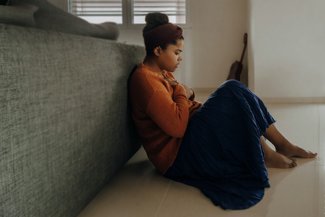
Underexamined and Underreported
Agenda Alliance's briefing on the links between intimate partner violence, suicidality (suicide attempts and suicidal thoughts), and self-harm.

11 Sep 2023
This long-awaited strategy covers several significant areas which will directly impact women and girls with multiple unmet needs, which we are pleased to see. In particular, recognising the clear link between domestic abuse and risk of suicide is a significant step.
Agenda Alliance's own evidence shows that women who have experienced domestic abuse are three times more likely to have made a suicide attempt compared to women who have not. Focusing on pregnant women and new mothers, self-harm and the criminal justice system also has the potential to address some of the most complex intersecting disadvantages that can increase the risk of suicide which women and girls experience.
We welcome the commitment to gathering better data across the board, but urge policymakers to include the wide and rich data already captured across the specialist voluntary sector in their efforts to avoid reinventing the wheel. Charities and community organisations, including specialist women and girls' services, often step in when previous interventions by public services have failed, and as such their insights will be vital to ensure this strategy has lasting impact and reaches those most at risk.
While the separate strands are promising, we are concerned that the strategy at times relies on existing plans and funds and that there does not appear to be new funding invested to properly resource early interventions. Furthermore, the strategy contains highly detailed recommendations for a number of separate policy areas, which risk becoming siloed if a cross-cutting delivery strategy that prioritises information-sharing and cross-departmental working is not set out. For women and girls experiencing multiple unmet needs, it is absolutely essential that services and strategies speak to one another to address their circumstances holistically and provide wraparound support.
This is especially relevant in the criminal justice system, and for women isolated in prisons, where accessing appropriate support is difficult. Fifty per cent of women in prison have experienced domestic abuse. Given this connection, it is vital that the criminal justice and domestic abuse strands of the strategy and action plan inform one another.
We would welcome the opportunity to engage with policymakers on how to bring these positive interventions into contact with one another at the earliest possible stages, to save more women and girls’ lives.
For help: Call 116 123 to speak to a Samaritan or see https://www.samaritans.org/how-we-can-help/contact-samaritan/ for other ways to get in touch.